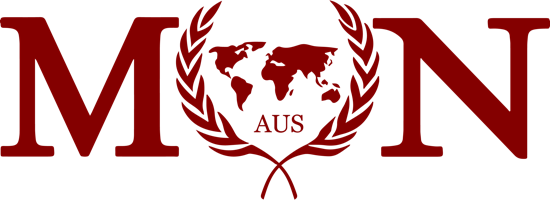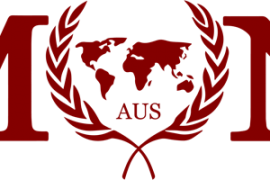Article in brief: you probably have heard about MUN, or AUSMUN in specific, but what is it really about and how does it influence the students?

Many of you have probably heard of “MUN”, “delegate”, or any of that jargon thrown at you at some point during your undergraduate years (for those who were undergraduates in any of the past 10 years). Maybe it was that nerdy International Relations major student you shared a dorm room with, or that friend you had on Facebook that would flood your newsfeed every other day with Al Jazeera articles. You probably even nodded your head or pretended you knew what they were talking about when you didn’t. However, by the end of this article, you won’t need to pretend anymore.
Within the Middle East, there are a couple of international MUN conferences, but the one I’m currently involved in is the American University of Sharjah MUN (AUSMUN), which takes place in Sharjah, United Arab Emirates. It is one of the oldest MUN conferences in the country, with this year marking the 9th AUSMUN conference.
So, what is MUN? MUN stands for Model United Nations and as the name suggests, it is a simulation of the United Nations (UN). Through this simulation, the MUN teams re-creates the actual conditions under which UN member states make their decisions all the way from the General Assemblies to the mother of all committees, the Security Council. Students (delegates) are assigned a country/organization that is part of the UN, and they must represent that member state’s opinion about a certain important global issue to the best of their ability.
Essentially, if you visit any MUN committee hall, what you will see is a live debate between member states representatives over what the best possible solution to a crisis is. This crisis can range from social to economic to humanitarian issues depending on which committee you walk into.
One of the most important elements of MUN is the resolution that the delegates draft in groups. The draft resolution is a formal document which states what actions need to be taken in order to resolve the crisis at hand. Any of you who follow the actions of the real UN will have heard that term repeatedly in the news or even on the United Nations website. After draft resolutions are written, the states put it to a vote and as per democracy states, majority rules. If the majority votes in favor of the resolution, then it passes. If the majority vote against it, then it fails.
You’re probably wondering why would students go through all this effort if the resolutions they write and pass do not actually get put into action officially. Why would students do all this political research, get into blood baths with other delegates, and then write an entire five page document at the end of the conference even when their resolutions aren’t going to be looked at by anyone from an official political party?
Frankly, that’s the beauty of MUN. The value of participating in MUN is in the experience and knowledge gained through the people you meet and the discussions you have. Can you imagine a better way to learn about politics than to pretend to be a politician yourself? MUN is the utopia for a Political Science major student. They get to see what it’s like to try get their point of view across a room of 50 delegates without being torn apart (though it’s bound to happen in at least one or two committee halls).
Some might ask what makes this particular conference unique? What keeps me coming back? Do I learn something new every year? One of the things I absolutely love about AUSMUN is the lack of discrimination between high-school students and university students. Walk into any committee at our conference; you’ll see delegates from the age of 14 all the way to the age of 23. We mix and match, as we believe that the old can learn from the young, and vice versa, and intelligence has nothing to do with age.
The other truly unique thing about our AUSMUN conference (or Sharjah in general) is that when you walk into a committee, the delegates will be students from every nationality you can imagine. Quite literally, you will see an Emirati student representing India, and an American representing Germany. It’s hard to find a conference as diverse as ours, and I can tell you firsthand, that it’s quite the experience.
Hope to see you at the next AUSMUN, February 25-27, 2016.
Written by Sarah Zoubi, Marketing student at American University of Sharjah
To find out more about AUSMUN:
Website | Facebook | Twitter | Instagram

